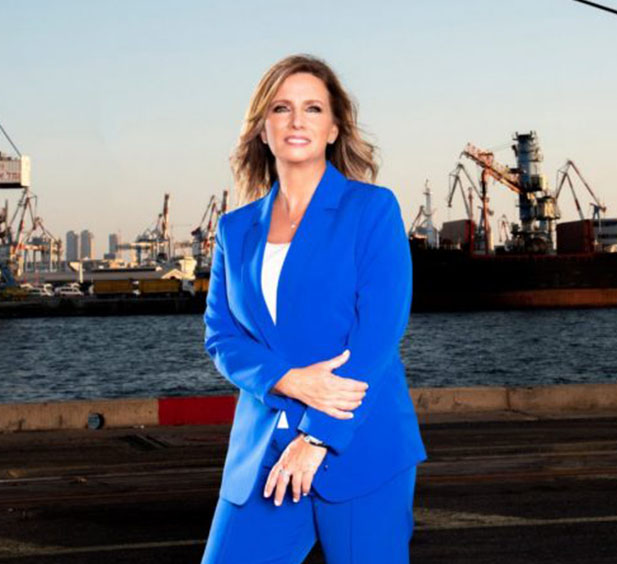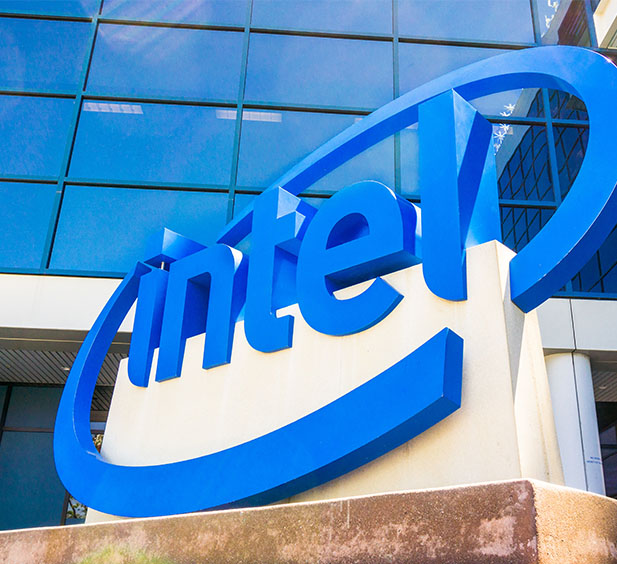With experience as Director-General of four government offices, Orna Hozman-Bechor, Chairperson of the Ashdod Port, tackles her career’s next big challenge: to lead Ashdod Port into an era of aggressive competition due to the establishment of the nearby private port.
Yoel Tzafrir | Executives | September 2019
Orna Hozman-Bechor Photo: Ronen Ackerman
Maoz Aviv, Tel-Aviv: “The neighborhood where I grew up. A unique neighborhood in which life is similar to that of a Kibbutz. Everyone knows everyone. It is characterized by varied flora and wide green front yards. Everyone is sitting on the grass under the buildings, and your closest friends are the neighbors.”
Your home influence: “I grew up in a family of four members. My mother was a nurse, and my father a bookkeeper. My brother is a banker. My parents seeded the motivation for success in us and pushed us to study, and when I turned to politics, they got stressed. They wanted me to have a safe workplace for life. My grandmother, Itta, had a great influence on my life. She had a newspaper and lottery stand on the corner of Even Gabirol st. and Kaplan st. in Tel-Aviv. During our vacations, my brother and I helped her; we would go to the Yachin building nearby with a basket filled with newspapers and finish selling the daily quota on the first floor. I was exposed to the world of sales at a young age, and it pushed me to succeed.”
Haim Slutzky: “A legendary producer. I started working for him after my military service, and by the age of 25, I was already a chief producer. He produced major events at the time, such as the huge concerts at the Yarkon Park of Tina Turner and Michael Jackson, and the main concert of Israel’s 50th Independence Day. He is the one who taught me that ‘life is just one big production’ and put me in contact with Silvan Shalom.”
Silvan Shalom: “Meeting him was a significant milestone in my life. I came from the field of production and connected with this person. Silvan was then running in the Likud primaries and was looking for someone to run his campaign. My work also included fundraising as well as parliamentary activity. I believed in him and in his way, I accompanied him for 21 years through a line of different roles, and we still keep a close and warm relationship to this very day.”
Leading change and making an impact
Work in the public sector: “For eight years, I worked as the Director-General of four different government offices. Working in the public sector has provided me with the possibility and the ability to lead change, which is a profound need in me – giving from myself, promoting, leading, and making an impact. Even in a small Ministry such as the Ministry for the Development of the Negev and the Galilee, we promoted large-scale projects.”
Establishing the Faculty of Medicine in Safed: “Not for 35 years was a single new medicine faculty opened in Israel. We created a revolutionary project, both on a regional and a national level. It was all a part of a large effort to reduce the gaps between the center and the periphery. Today, I feel tremendous pride for what we did since the second class of medicine studies is running in Safed, and high-quality laboratories operate on-site.”
Without a doubt, it is the peak of my work in that Ministry and something I will be able to tell my grandchildren… Establishing this faculty upgraded the medical array in the north of Israel and allowed students who were forced to study abroad to complete their studies in Israel. The initial idea was of Shimon Peres, but it was lying in a drawer. Silvan stood up and said, ‘Go for it – I will take care of getting the money,’ and so it was.”
Promoting women to senior positions: “This is something that is very dear to my heart and constitutes a central part of my agenda. Every place I’ve been, I actively took action to promote women to senior positions and guarantee that at least half of the board members are women. It is the same at Ashdod Port. I believe that female management has great advantages. It is a way of managing with less ego, focused, open, temperate, which also brings results as studies have shown.”
Managing a home and a career: “Without my husband, I wouldn’t be where I am. It’s crystal clear. It is not easy to juggle a home, a family, and a demanding career. It’s also much harder for women since the expectations are higher. I was blessed with a family that supports me and is proud of what I do.”
Brutal competition
The challenge of Ashdod Port: “We are on the verge of competition with the private port located nearby, the building of which will be completed in a year and a half. It will be an intense and perhaps even brutal competition. We predict a decrease of about 40% in containers’ traffic at first, as one of our main clients is currently building the new port and will obviously use its services. The next few years will be challenging, but I believe we will get through the first wave and will come out of the rough sea towards the breakwater.”
Turning the port into a competitive and attractive port: “This is quite a heavy task, and it includes efforts on three fronts: investing in infrastructures – we apply a program of substantial investments, as large as two billion shekels, to upgrade the infrastructures; building a deep-water terminal – to enable the port to receive the mega-ships carrying up to 18-20 thousand TEU, and working relations – we are acting towards finding an agreement with the employees to achieve industrial silence in an era of brutal competition. Our employees also realize that we are entering a new period that will require special efforts on their behalf since eventually we are tested for quality; and lastly, there is regulation. The regulation must be adapted to enable fair competition.”
Business development: “Our strategy is directed towards turning the port into a more competitive, a more service-oriented, and a more modern one. One where the platform waits for the ship and not the other way around. A port that receives and unloads containers as soon as possible and satisfies its clients. I believe that the increase in trade, following the entrance of Amazon and other players, will increase the demand.”
Relations with the city of Ashdod: “Warm and wonderful. The city is experiencing a tremendous development boom in all fields, with demographic growth, increased life quality, and improved leisure culture. We work closely with the municipality on many projects, including in the area of innovation, and we have a close relationship with the city and its residents. After all, we are the largest employer in the town, and we find great interest in everything related to the employees and their families who are residents of the city.
Developing the southern periphery: “The current government makes extensive efforts, and we can notice the significant change – in Beer-Sheva, Dimona, and other places. Paving roads, relocating military bases to the Negev – an act I was very closely involved in, especially in finding employment for the standing-army soldiers’ spouses. There is the development of high tech and science, establishing cultural auditoriums, etc. To this day, as I walk around the different towns in the south, mayors come up to me and say: ‘We are now inaugurating the project you started.’ It’s touching.”
First and surname: Orna Hozman-Bechor.
Age and family status: 50, married with two daughters.
Residency: Ramat-HaSharon
Education: B.A. in Business Administration from the Thames Valley University (today the University of West London), and EMBA from the Bar-Ilan University. Graduate of a directors’ course at the Tel Aviv University School of Management.
Current position: Chairperson of the Board, Ashdod Port.
Previous positions: Director General of four government ministries: Interior; Energy, Infrastructure, and Water; Development of the Negev and the Galilee; and Regional Cooperation. Before that, the Office Director of the Minister of Finance and the Minister of Foreign Affairs. Member of the Israel Land Authority Council and director of Mifal Hapais.











